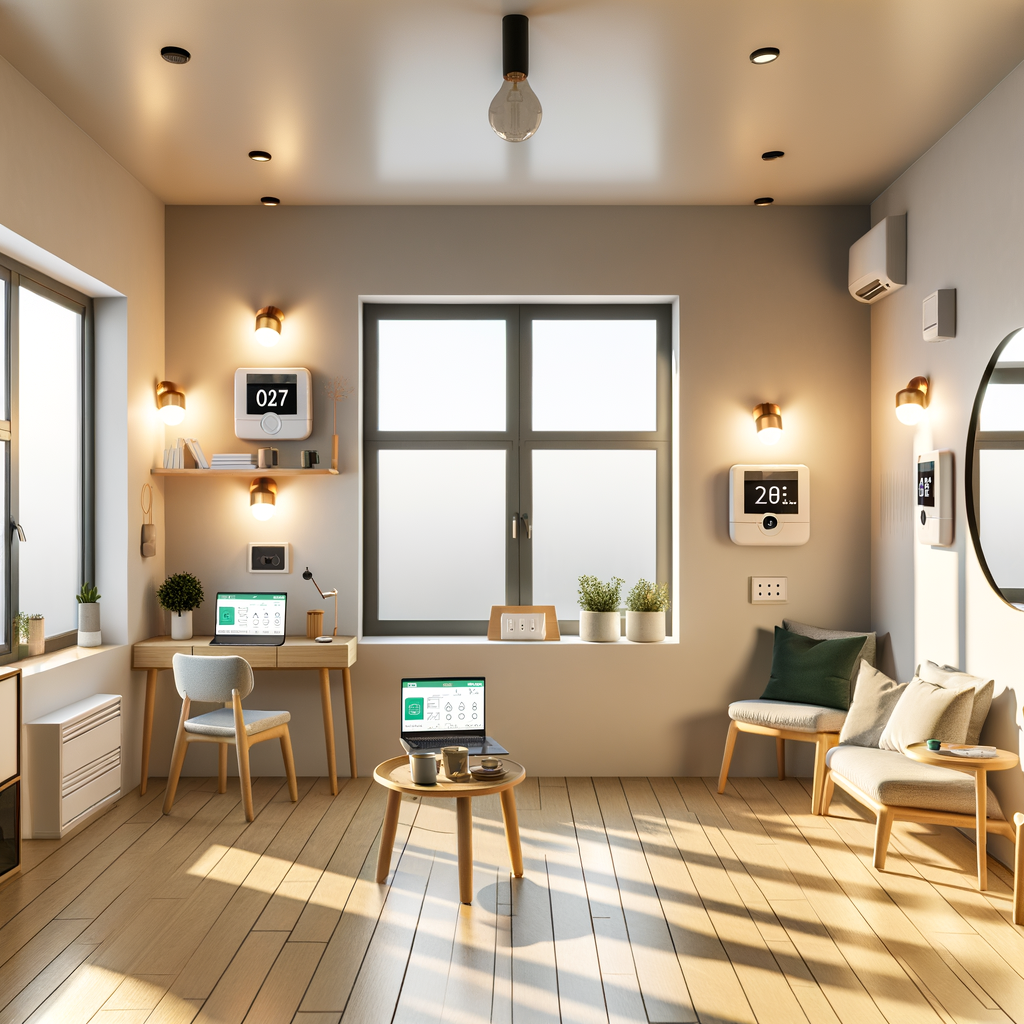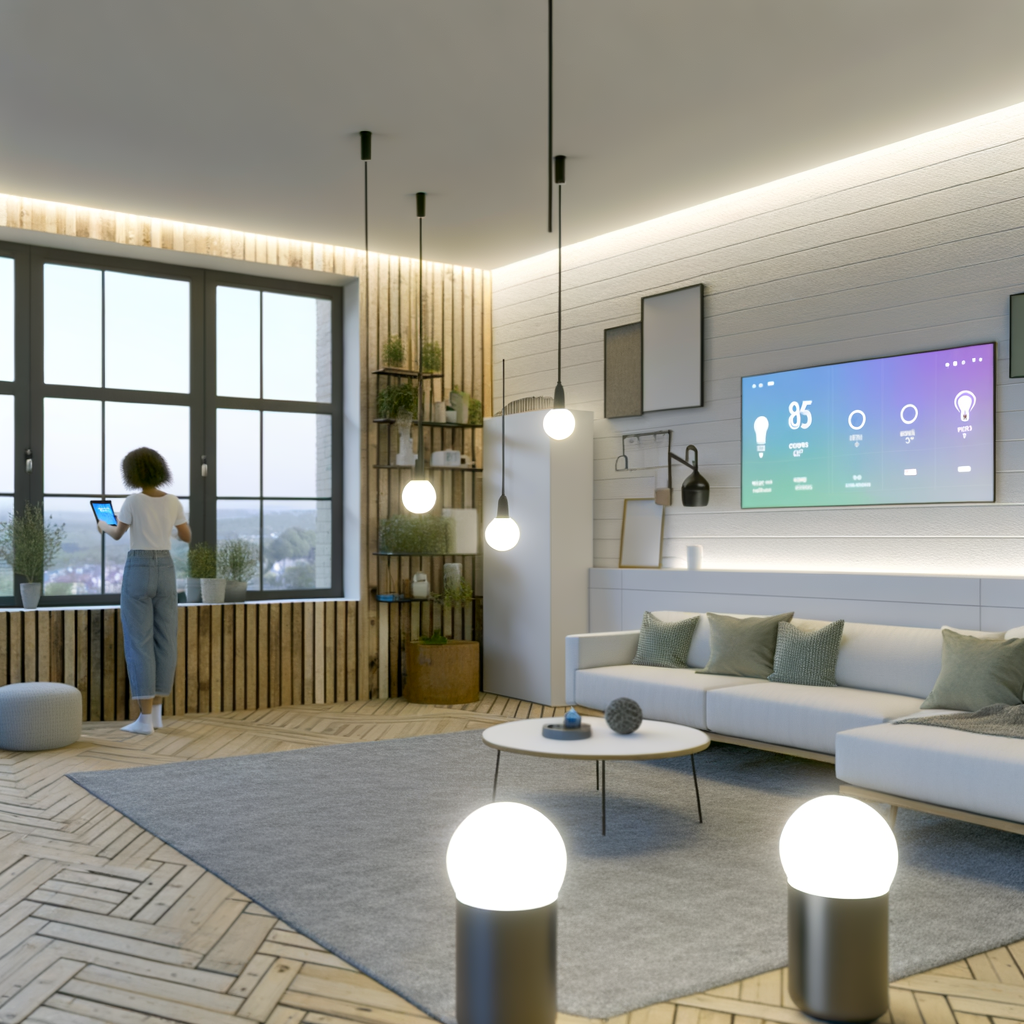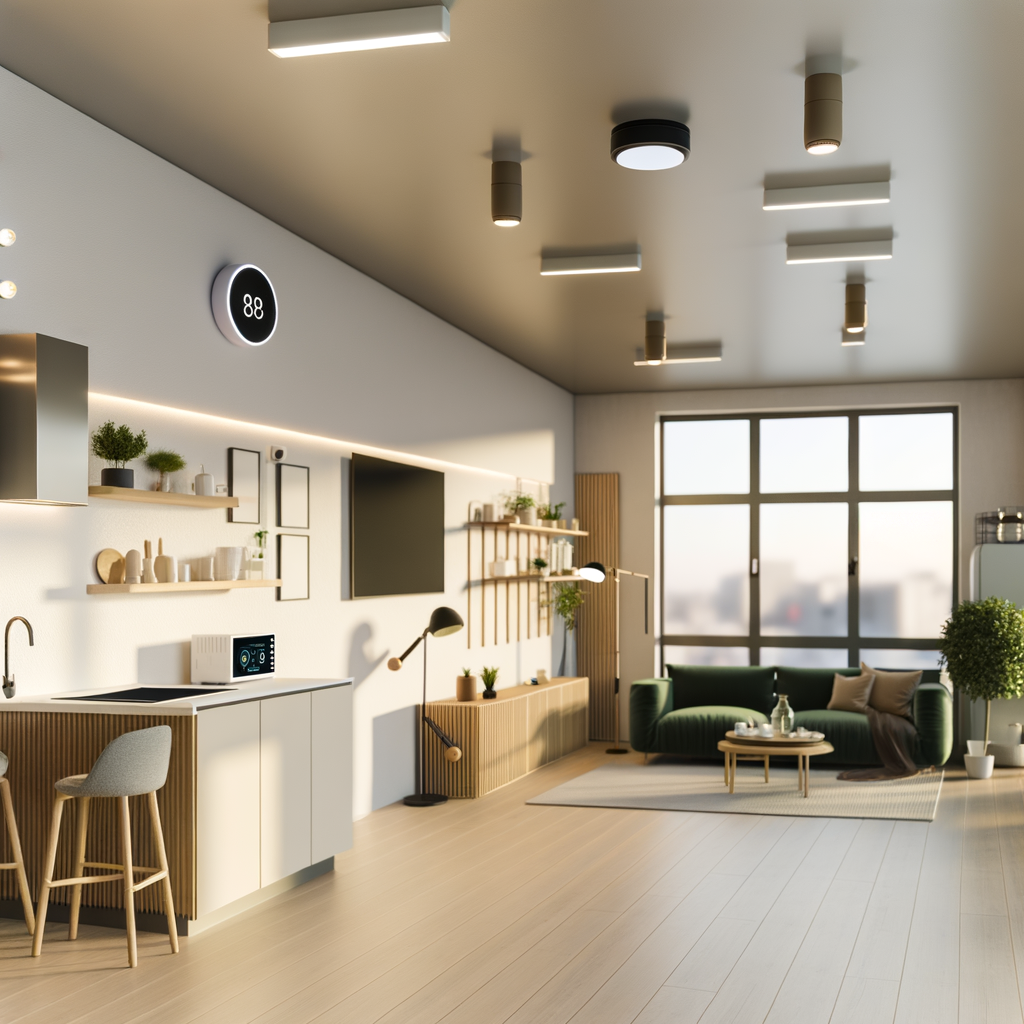How to Create a Smart, Energy-Efficient Apartment for Under $100
Energy efficiency and smart living go hand in hand, especially for renters who want to maximize comfort, reduce utility costs, and help the planet — all without making permanent changes to their space or breaking the bank. The good news? You don’t need a huge budget or own your home to make significant improvements. With less than $100 and a few practical gadgets, you can create a smart, energy-efficient apartment that saves money and feels great to live in. Here’s how.
Why Focus on Energy Efficiency in Your Apartment?
- Lower utility bills: Save money every month by using less energy.
- Reduced environmental impact: Less energy means a smaller carbon footprint.
- Improved comfort: Smarter controls keep your home at the perfect temperature and lighting.
- Easy upgrades: Most simple, renter-friendly solutions require no rewiring or landlord approval.
Step 1: Assess and Track Your Energy Use
Before you start buying gadgets, take a little time to understand where your energy goes.
Quick Apartment Energy Audit
- Identify old or inefficient appliances and light bulbs.
- Look for drafts near windows and doors.
- Note which devices are always plugged in (even when not in use).
- Track energy use using your utility bills.
Awareness helps you prioritize what to upgrade first for the best results.
Step 2: Invest in Smart, Plug-and-Play Devices
Smart home technology isn’t just for homeowners. Many renter-friendly options are self-install, work with your Wi-Fi, and don’t require rewiring. Here are the most effective ways to get started — all for under $100 total.
1. Smart Plugs
- Why: Smart plugs let you control lamps, fans, and appliances from your phone or voice assistant. Set schedules to avoid wasted energy and automate routines.
- Cost: $10-20 for a two-pack.
- Where to use: Entertainment systems, kitchen appliances, space heaters, and anything that draws power when not in use.
2. LED Smart Bulbs
- Why: Replace energy-guzzling incandescents with LED smart bulbs. Customize brightness, color, and schedule remotely for both savings and ambiance.
- Cost: $15-30 for a 2-pack.
- Tip: Even if you can’t replace every bulb, targeting fixtures you use most can pay off quickly.
3. Simple Door & Window Draft Stoppers
- Why: Drafts around doors and windows lead to energy waste. Soft foam or fabric stoppers require no installation and seal that expensive air inside.
- Cost: $7-15 each.
- Renter-friendly: No adhesives or screws needed.
4. Affordable Smart Thermostats (Plugin Models)
- Why: If your apartment uses plug-in space heaters or AC units, a smart thermostat plug allows smartphone and schedule-based temperature controls — no wiring or landlord approval.
- Cost: $20-40.
- Pro tip: Check for compatibility with your device (most work with portable heaters and window ACs).
5. Energy Usage Monitors
- Why: Plug these devices into your outlets to see, in real-time, how much electricity each appliance uses. Spot the biggest “energy vampires” and unplug or automate as needed.
- Cost: $15-20 per unit.
Step 3: Setup and Automate for Maximum Savings
Devices alone aren’t enough — the real magic is how you use them. Let’s see how to put your new gadgets to work.
Automate Your Lighting
- Set smart bulbs and plugs to turn off automatically when you leave for work or go to bed.
- Use voice commands or a simple tap on your smartphone to control devices without even getting off the couch.
- Try motion detector features (built into some smart bulbs) for closets and hallways.
Kill “Energy Vampire” Devices
- Many TVs, game consoles, and kitchen gadgets draw power even when switched off. Plug them into a smart plug, and schedule it to turn off when not in use.
- Use energy monitors to find the worst offenders.
Smart Temperature Control
- Pair plug-in thermostats with portable heaters or AC units. Program them to run only when needed, and turn off automatically when you leave the apartment.
- Even a 1-degree adjustment can save up to 10% on heating/cooling bills over time.
Block the Drafts
- Use draft stoppers at doors and windows in winter and summer for less heat/cold transfer.
- Removable thermal curtains can provide bonus insulation, but may put you over $100 depending on your needs. Prioritize for the coldest months.
Step 4: Combine and Conquer—Example $100 Smart Apartment Shopping List
- Smart Plugs (2-pack) — $15
- LED Smart Bulbs (2-pack) — $18
- Energy Usage Monitor — $17
- Door Draft Stopper — $9
- Smart Thermostat Plug — $25
- Total = $84 (prices may vary, but this shows it’s possible!)
Customize to fit your biggest needs — for example, more bulbs if you have many lamps, or extra draft stoppers for multiple doors.
Tips for Renters: Maximize Smart Upgrades Without Breaking Lease Rules
- No drilling or rewiring: All the gadgets listed here are plug-in or removable. Read manufacturer instructions and your lease agreement, but you rarely need permission.
- Choose removable adhesive hooks or velcro if mounting small sensors or smart device controls.
- Keep original equipment: Save any bulbs or hardware you swap out, so you can reinstall them before moving out.
- Ask about rebates: Some energy providers offer instant discounts for LED bulbs, smart plugs, or energy monitors. Check your local utility’s website.
Going Further: Low-Cost, No-Tech Solutions
If you have a little budget left or just love DIY:
- Weatherstripping tape: $5-10 per roll, seals cracks around windows/doors.
- Thermal curtains or shades: Block heat in summer/cold in winter. Starting at around $20.
- Reflective window film: Reduces heat gain in sunny windows for less than $15.
- Power strip with a timer: Set “off” hours for chargers and entertainment systems.
Bonus Tips: Eco-Friendly Routines for Big Results
- Laundry: Wash with cold water, and always run full loads. Hang-dry when possible.
- Dishes: Scrape, don’t rinse; run full loads in dishwashers on eco mode.
- Fan instead of AC: Use portable fans, and rotate to use cross-breezes. Fans use a fraction of the energy of AC units.
- Layer up or down: Wear season-appropriate clothes and use throw blankets before kicking up the heat or AC.
Frequently Asked Questions
Can I really make a difference as a renter?
Absolutely! The average U.S. apartment uses over 30% of electricity on lighting and plugged-in devices — all completely within your control




